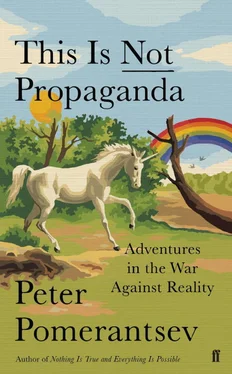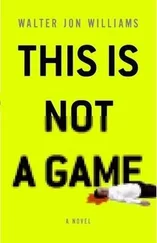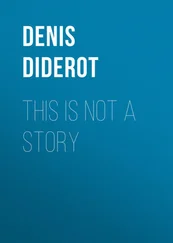In the summer of 2018 I took the train with Rashad to towns in England in which he had grown up and preached. On the way, as we passed fields parcelled as intricately together as I remembered from my childhood, Rashad told me how he would practise recruitment techniques on strangers during train journeys as lessons for younger Hizb disciples, who would observe him. One time, on a train to Durham, he saw a woman reading a newspaper in which there was a distressing report about how a ten-year-old boy had killed his baby brother when, for a laugh, he put him in a washing machine and switched it on.
Rashad approached the woman and asked her what she thought about the article. The woman told him the story angered her. She blamed the parents. They had gone to the pub that evening, left the children all alone. She was a nurse, and every day she saw how narcissism, irresponsibility, negligence caused harm to others.
Rashad had his in. He asked the woman whether she thought this sort of behaviour was inevitable in a liberal, secular society, where people were encouraged to think about nothing but their personal gain and pleasure. What we needed, argued Rashad, was a society where all the economic and social laws would encourage care for one another, where people would know good deeds brought high rewards.
The woman nodded.
It may sound novel, Rashad concluded, but had she considered that an Islamic state could be a way of establishing just such a society…?
Rashad and his pupils got off soon after, and we will never know what the nurse made of his proposal. But the essence of the recruitment arguments was clear: whatever issue a target cares about, your job is to connect it with the need for an Islamic state.
In Birmingham, Rashad and I walked through the streets, among red housing and low sky, but which had been brought to life with street vendors selling fruit and sandals, McHalals, Sudanese supermarkets with brightly coloured shawls, graffitied murals calling to ‘Free Palestine’, Somali passageways selling niqabs. But what struck me were the bookshops. I counted at least three large ones on a single short stretch of street, with long rows of hardcover books of holy texts and commentary, and garish paperbacks on everything from Polygamy to God’s Gentle Artistry, Jihad, Islam and Karma and The Prohibition of Homosexuality. All were sponsored by different Islamic movements and by different states, all tussling over the minds of English Muslims. At one point Rashad drove out to a warehouse by a flyover, where we were met by a man with a beard and a key who took us up in an industrial lift to a floor where books were piled high, whole valleys and alleyways of spines with gold Arabic lettering, which Rashad clambered through excitedly. ‘I’ve found it! Al-Ghazali, The Ninety-Nine Beautiful Names of God! ’
It’s his knowledge of Islamic law and recruitment techniques that make Rashad so good at what he does today: extracting people from the sort of movements he was once a part of. He works at an organisation blandly entitled the Institute for Strategic Dialogue (ISD), which tracks online extremist campaigns, advises governments and technology companies on what regulation they should (and shouldn’t) introduce to tackle them, and experiments with what it calls ‘counter-speech’, reaching out to audiences coming under the sway of extremist movements. The ISD defines extremism as ‘a system of belief that posits the superiority and dominance of one “in-group” over all “out-groups”, propagating a dehumanising “othering” mind-set that is antithetical to the universal application of Human Rights.’ Sometimes they simply refer to it as ‘othering’.
Across the ISD office there are dozens of people. There are teams looking at how hatreds are inflamed online in Kenya, with Islamist movements trying to define the country according to religion, while political parties try to redraw the lines of loyalty along tribal ones. Next to them researchers track computer-gaming sites where neo-Nazis recruit new converts. The neo-Nazis stalk online forums where awkward teens spend their days playing Second World War games. Those who seem the most angry, lonely, the neo-Nazis direct towards other chat rooms, where they instruct the new recruits on digital marketing campaigns to promote far-right causes: which videos on YouTube to like or dislike; how to create swarms of automated accounts to boost far-right campaigns on social media. The recruits move from computer games to digital political campaigns that feel like another sort of game, all the while never leaving their bedrooms, slipping from one virtual reality to another.
On Reddit and 4chan sites anonymous administrators provide an online ‘crash course in mass persuasion’, which in the Cold War would have been the province of the secret services and ‘civilian psy-ops’. There is advice on how to use the values of your enemy against them. So if you are attacking a leftist politician, you should create a fake liberal persona for yourself online and point out how politicians are part of the financial elite, or how their ‘white privilege’ has allowed them to rise to the top and avoid arrest. There are instructions on how to ‘control an Internet forum’, including tips on ‘consensus cracking’: using a fake persona to introduce the ideas you oppose in such a weak and unsubstantiated way that you can then use another fake persona to knock them down. Campaigns can come from anywhere. The ISD once found a Russian freelance bot herder in Nizhny Novgorod promoting German far-right memes, next to their other campaigns for escorts in Dubai, medical clinics in provincial Russia, attacks on Russian opposition figures.
The ISD also has teams creating educational videos for schools, so teenagers learn how to recognise far-right and Islamist campaigns, which are becoming ever more intermingled with a young person’s everyday social media life. Jihadi recruiters, for instance, will first scan a potential target’s social media profile, see what a person’s favourite interests and hobbies are, and then try to engage with them accordingly. If they feel a young woman is interested in religion, romance, a family, they might strike up a conversation about the virtues of a Salafi husband. If a person doesn’t respect God, they argue, how could they be expected to respect their wives?
The Internet has made recruitment quicker and more dexterous than when Rashad was first in Hizb, but the underlying techniques of envelopment are similar. Today it is ISIS that is best known for propagating the need for an Islamic state, and though Hizb has officially condemned the movement, Rashad can see how it echoes Hizb’s original interlacing of feelings, concepts, language and behaviour.
*
‘Tell them how much you miss them, and that tearing yourself away from family is haram.’
Rashad is direct-messaging the parents of two teenage girls who have joined an Islamist movement in the Middle East. The parents are in an English market town and are simultaneously talking to the girls, who are somewhere in Iraq. They are asking their parents’ permission to marry Jihadi fighters. The girls write that they miss their parents, they’re sorry, they don’t want to cause them pain, but this marriage is their duty to the soldiers of the Caliphate. This is their contribution to a great cause.
Rashad knows the parents brought the girls up as conservative Muslims and sent them to study medicine in Khartoum, and then found, to their horror, that the girls had been turned towards a form of Islam so radical and political that they could barely recognise it. At their wits’ end, they have asked Rashad for help.
For Rashad, the fact the girls are even writing to their parents for permission is a good sign: it means they still feel a bond to Mum and Dad. This is where the extremists’ hold on them could be weakest, where he can unpick a strap that binds them to their new identity.
Читать дальше












